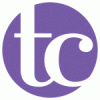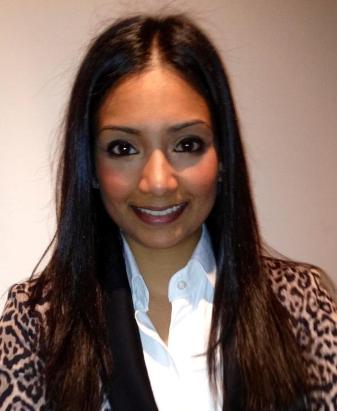As a Tamil Young Professional (Tamil YP) or student, figuring out what to pursue as a career can be confusing. So many industries, so many titles. We’d like to help you in your journey by inspiring you with career stories of Tamil YP’s from different industries.
This month’s featured Tamil YP is Sandra Sabaratnam. She is a Health Informatics Consultant based in Toronto and has spent the last 3.5 years assisting Alberta and Saskatchewan in their journey towards interoperability to build the Electronic Health Record (EHR). Outside of her day job, Sandra is the manager of singer Bina Boo, a member of the Canadian Tamil Alumni Association’s Advisory Board, and an advocate for women’s empowerment. We chatted with the 26-year old to get some insights into her life as a Consultant.
TamilCulture: How did you find your job?
Sandra Sabaratnam: Graduating from the University of Waterloo with a Bachelors of Science degree in Health Studies, Health Informatics option and 20 months of work experience in my industry, I expected to have multiple job offers to select from. Was I wrong! After applying to numerous job postings and having no success (not even an email), a former colleague and friend of mine suggested I get some advice from someone she knew, CEO of Global Village Consulting. A chat over coffee quickly turned into my hardest interview, and a job offer two weeks later. Learnings: 1) keep in touch with past colleagues, 2) meet new people (e.g. the network of your network), and 3) seek for job opportunities not yet publicly posted.
TC: How did your education and work experiences prepare you for your current role as a consultant?
SS: Both my education and work experiences prepared me in different ways – education taught me the theory and learning of foundational skills (e.g. teamwork, written and oral communication), while my past work experiences taught me the application of theory, understanding the normality of change, if you don’t know something – admit it and not fake it, and that the quality of your work speaks to your professional brand – so don’t jeopardize that!
TC: Did you always know this is the area of work you would be involved with?
SS: Short answer – no! I didn’t even know that Health Informatics was a word until I started university. The original plan was to pursue a career as a medical or naturopathic doctor, but after applying to numerous jobs for my first co-op term, the only job I was offered was with a healthcare consulting company. I remember saying to myself, “Yea it is great that I have a job, but working in front of a computer all day when all I really want to do is work with patients is not going to be fun.”
This feeling quickly changed as soon as I started working. My manager, and now good friend, had such a positive influence in my life during those 4 months. She mentored and supported me in my realization of being able to make a positive impact in healthcare through information technology. It was after this experience that my career plans changed to focus on health IT.
TC: Briefly describe a typical work day.
SS: My typical work day varies depending on the city I am working from, but an average day is as follows:
4:50am – Wake-up
5:20am – 1-hr strength and conditioning workout
6:40 – Eat Breakfast
7:20 – Travel to work, check and respond to emails
8:50 – Arrive at work
9:00 to 9:10am – Review my to-do list and highlight priority items for the day
9:10am to 5:00 – Meetings with teams/ vendors/ management, review project plans, escalate issues
5:00 – Travel home and take a snooze (if needed)
6:30 – Rollerblade/ other cardio/ catch-up with my family and friends
7:00 – Cook and eat dinner
7:30 – Check emails/ work on client work other corporate assignments/ professional development/ other personal and volunteer work
9:15 – Pack lunch and snacks for next day/ catch-up with family and friends
10:00pm – Bed Time
TC: What do you like most about your job?
SS: To sum it up:
- Making a difference – I know and believe that the work I do every single day positively impacts the health of all Canadians, my family, you, and I
- Challenged and stretched – I am constantly thrown into “sink or swim” situations and have learned so many lessons from the risks I had to take and mistakes made, resulting in my capabilities and skills far exceeding my actual years of experience
- Entrepreneur within a Private Company – working for a company who instils ownership thinking to all their staff allows me to identify and openly discuss problems with Executives and then develop and implement a solution
- Working with amazing people – I am very fortunate to work with enthusiastic and positive people who are hungry to make a difference in healthcare
TC: What are some challenges you face or learnings you realized with your job?
SS: One of the main challenges I’ve faced in my job is being in a leadership role to people much older than myself. People are often skeptical and doubt my capabilities, however, experience has taught me that by persevering and excelling in the job, not just doing your job, will change people’s perceptions over time.
TC: Was it hard to re-locate for work?
SS: Yes – moving to a new province in which I had no friends or family was initially scary. After speaking with my parents and my mentor, I knew that re-location was a risk I was willing to take because of its career acceleration benefits. I’ve now been travelling for 3.5 years and while the return on this decision is exponential, there are no gains without some pains:
- Health – my health initially suffered with the move as I made poor decisions (i.e. eating out, drinking); I gained the “frosh 15” and while I appeared to be happy and confident, internally I battled with my own internal conflicts and self-esteem issues
- Relationships – many of my relationships have suffered as a result of being away from home; weekends at home turn into an errand weekend and not having enough time to see everyone
- Family – my role as a daughter and sister has changed as I provide remote versus in-person support; while their needs are being met, I sometimes feel like I am missing experiences with them
- Personal – while there are some personal goals that can be achieved regardless of your location, there are some for which I have put on hold until I return home (e.g. living the downtown TO life)
TC: Any advice for people considering this line of work?
SS: Consulting definitely isn’t a career choice for everyone, but if you are someone who enjoys problem solving, adapting to changing needs, are comfortable with providing recommendations and not being the decision maker (as that is the role of your client), and willing to continue to learn and study as the industry needs change, then consulting is right for you!
TC: How do you balance your work and personal life?
SS: First, define what work and personal life balance means to you. Everyone’s definition will be different. Secondly, schedule your personal time into your calendar. Since I love what I do, I’ve learned that without blocking off my calendar to do personal things (e.g. fitness, family/friends), it is very easy for me to get consumed in my work. Third, be 100% present in whatever you are doing, as this will make you more efficient and the quality of your work and personal life will improve.
For my definition of work and personal life balance, I would say I have gotten much better over the years, but it is something I am still working on. Over time, your priorities will change so your definition too will change. Live a lean life. Love everyday. Work hard everyday. Make a difference.
Sandra has kindly offered to take any further questions readers might have about the life of a consultant. Please direct your questions to info@tamilculture.ca or reach out to us through Facebook/Twitter and we’ll gladly put you in touch with her.

 Tamil Culture
Tamil Culture










